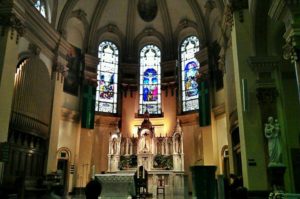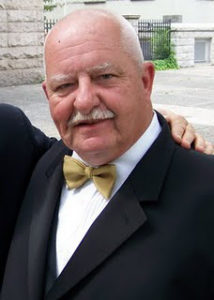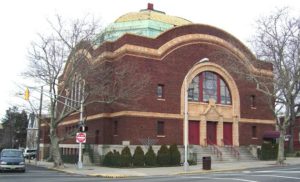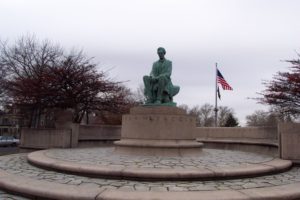Inside An Irish Lullaby
A word from the author, Louis Michael Manzo…
During his visit to Ireland a half century ago, shortly before his assassination, President John Fitzgerald Kennedy stated, “It is that quality of the Irish—that remarkable combination of hope, confidence and imagination—that is needed more than ever today.” How endearing were President Kennedy’s words, especially in light of the events transpiring in today’s world.
I was born and raised in the predominantly Irish-Catholic neighborhoods of Jersey City, New Jersey’s West Side and Lincoln Park districts—also known as the Saint Aloysius Parish neighborhoods. I was blessed to share the customs, heritage, stories and lives of so many who befriended me. An Irish Lullaby is my personal tribute to the friends and families of my childhood and the old neighborhoods, fabulous people, as well as an expression of gratitude for my Catholic faith. To me, it was the greatest place on earth where a kid could grow up.![]()
Somehow, Saint Aloysius Parish became the center of our lives—everything seemed to flow from the church. Each parish that comprised our midsize city was like its own small-town America. For the purpose of heightening the enjoyment and nostalgia of the reader, I took the customs and values of 1960 parish life and transformed them into the modern-day timeframe in which the story takes place. Likewise, many of the settings and locations from the 1960’s Jersey City [some which no longer exist] are also recreated for the modern timeframe of the story.
Particularly important to note, is that when reading the depiction of the clergy in the story, the culture and mores of 1960’s clergy are being portrayed. The priests in the story are an amalgamation of the characteristics of the priests that I had known while growing up. Older priests were more conservative and younger priests were somewhat more active in social politics, such as speaking out against the Vietnam War that was raging at the time. The priests then, more so than at any other time that I can recall, really involved themselves in the community issues of the parishes to which they were assigned. In today’s PC world, these characteristics may seem to be a bit more politically incorrect or unpolished than in the 1960’s era for which they were suited for—but they are genuine.
Particularly noteworthy is the backstory of the main protagonist, Father Sean O’Connor, and his service as a chaplain during the Vietnam War. It is based on the war record of Chaplain (Captain) Angelo J. Liteky of the 199th Infantry Brigade, who earned the Medal of Honor for his heroic and extraordinary exploits on December 6, 1967 while serving in the Vietnam War. Chaplain (Captain) Angelo J. Liteky’s war record is authentically portrayed in the story.
After his service in Vietnam, Liteky left both the Army and the Catholic priesthood and became a peace activist. In 1986, he renounced his Medal of Honor by leaving it in an envelope at the Vietnam Veterans Memorial in Washington. The National Park Service recovered Liteky’s medal, and it is now on display at the National Museum of American History.
The provocative abortion scene that opens the novel is based upon medical research and the interviews with medical professionals and personnel. It was a labor of intense care and thought—rewritten and edited over and over, until I felt it was right. It is controversial and gut-wrenching, but it is factual. It is presented, as the reader will discover, not for the sake of being gratuitous, but to rather invest the reader in the story that follows—it heightens the drama and the value of the reading experience.
The discussions by the characters in the book concerning abortion comprise prolife and prochoice viewpoints publicly expressed by modern-day advocates of those positions.
I also want to express my grateful appreciation to Judy Katz and Mark Malatesta, two writing coaches and friends, who have helped me to seriously hone my craft; and a special thanks to Kris Millegan of TrineDay Publishing, who gave launch to my writing by publishing my first book. Special thanks also to Augie Torres and Al Sullivan, journalists and hopefully future authors, for their insightful and helpful critiques of my manuscripts, before they were marketed.
Of course, I also wish to extend my gratitude to Dr. Gene D. Robinson, the head of MOONSHINE COVE PUBLISHING, for his faith in this story, along with the true grit to publish a story with such controversial a subject matter.
And, of course, my heartfelt thanks for the many family and friends who continue to enjoy and encourage my writing. Now, back to work on my next manuscript……







